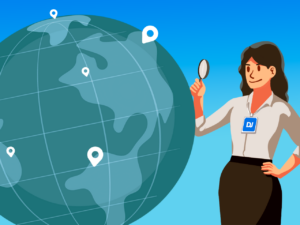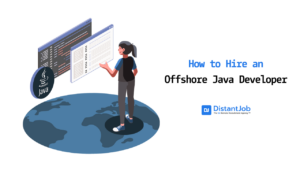We live in a world driven by information. Advances in technology make it easier and easier to access and share information, but they also make it easier for someone to steal the software you worked so hard to develop. It took you years to create software that would work for your business, and if you choose not to protect it, you might find all of your hard work available for the rest of the world to access. Let’s face it: no one else should profit from your software and the ideas driving it.
The best way to protect your software is to build a wall around it. For Americans, the primary means of protecting software are copyright registration with the Copyright Office, NDA agreements and well-written contracts, and a trade secret system that ensures you have the best possible security strategy. If you believe that you do have technology that deserves a patent, register it. Just make sure to do so before the public release. The sooner you take care of these things, the more you can protect your hard work.
Let’s discuss in depth five measures you can take to prevent your software’s intellectual property from falling into the wrong hands. Before we discuss how software can be protected, let’s understand intellectual property and its types.
What Is Intellectual Property?
Intellectual property (IP) refers to creations of the human mind that are protected by law, giving creators exclusive rights over their innovations and creative works. Think of it as a way to own and protect ideas, just as you would own physical property.
IP rights are granted to the one who creates original works born out of human intellectual creativity. Some types of intellectual property, like copyright, are automatically safeguarded from the moment they’re created. Some others require government agencies to give them specific rights before they get legal protection.
Types of Intellectual Property
Trademarks (10 Years)
Names, symbols, phrases, and even sounds used with products or services can be trademarked. Reputed brands need to get their brand names, tag lines, products, and services trademarked to protect everything born out of their creative ideas.
Patents (20 years)
If you want to protect the intellectual property of your software, you need to get it patented. Once you obtain the legal right for your software, nobody else can manufacture or market it. They can only apply to license your product.
Copyright (the life of the author + 50 years)
A copyright is particularly used to protect written or artistic expressions such as songs, novels, poems, or movies. It’s important to note that copyright doesn’t cover the idea but the expression of an idea. There’s no need to register your material to obtain copyright, but to protect yourself from copyright infringement and to be able to sue for the same, registration is necessary.
Trade secrets
Specific processes, patterns, devices, or data that grant a business advantage over its competitors are considered as trade secrets. This category is covered under state laws. A business needs to prove that the particular process or data adds value to the company and is an important secret.
Why Is Software Regarded As Intellectual Property?
Software is an important part of any business. In fact, most businesses run only on the software they build the software they sell. Safeguarding the software created by your business is important, because just like designs, art, novels, etc., software is also born out of a creative idea or process that aims at solving a problem.
In a world where every business and individual depends on some kind of software for various purposes, it’s important for the creator of this software to protect their invention or idea from theft.
5 Ways To Protect The Intellectual Property Of Your Software
Software IP protection is like building layers of security around your valuable creation. Just as a museum uses multiple security measures to protect valuable artifacts – from security guards to alarm systems to reinforced glass – you’ll need various legal protections to safeguard your software. The U.S. legal system offers five specific ways to protect your software intellectual property, each serving a unique purpose in your overall protection strategy.
These are the five ways in which you can protect your software IP.
1. File for Copyrights, Trademarks, and Patents

Copyrights (©)
According to the US copyright office, copyright is legally enforceable protection for original work or production. The same law can protect original software because code is considered an authored product. The protection begins the moment the items are created.
It is also important to register with the office. This will help your business take legal enforcement steps whenever necessary.
Since the US has copyright relations with most countries, your registered copyright is also applicable in other countries. Once you register your copyright, you claim legal copyright protection for your software. You can take legal action against anyone who infringes upon your copyright and uses your intellectual information without your permission.
Trademarks (™)
According to the US, a trademark is used to protect words, phrases, symbols, or designs identifying the source of the goods or services of one company and distinguishing them from those of others.
Businesses often use some words, phrases, symbols, and designs in their marketing campaigns and as part of their brand kit to spread awareness and build an identity.
Your trademark can be registered online with the US Patent and Trademark Office (USPTO). It’s best to consult a trademark lawyer to help you with this as the entire process is quite tedious.
Generally, trademarks do not expire. It’s still a good idea to go for a Section Eight declaration to confirm the IP’s activity status.
Patents (®)
If your software has a unique feature that sets it apart from your competition, you must go for a patent. A patent legally protects discoveries or inventions. It prevents others from making or distributing your invention without obtaining a license from you.
You can protect the IP of your software design by filing for a patent with USPTO online. There are different types of patent processes, and you’ll need to know which applies best to your software before you proceed with the patenting.
In the US, most IP patents are valid from 15 to 20 years after the filing date. You can renew your software IP patent after that.
2. Sign Confidentiality Contracts with Partners and Employees

Developers, partners, and other people involved in creating the software should be asked to sign a confidentiality agreement to ensure IP protection.
Confidentiality agreements that you can ask your team and partners to sign:
- Non-Disclosure Agreement (NDA)
- Secrecy Agreement (SA)
- Proprietary Information Agreement (PIA)
- Confidential Disclosure Agreement (CDA)
You can have licensing contracts for your partners to access your software for branding and distribution. You can dictate the conditions of use in such cases.
3. Sign IP Assignment Agreement with Developers

Get the developers of your IP assets to sign an IP assignment agreement that clearly states that all work produced during the project and within the company belongs to the company.
This will safeguard your IP information from being sold to a competitor and from personal use. Signing an IP assignment agreement with developers is necessary because sometimes many developers work on one software project and you can’t trust everyone with your idea and design. You wouldn’t want the developer to work on a project for a competitor with your company’s ideas.
4. Look Into Source Code Licenses

If your developers choose to use a source code license, you’re giving the licensee a non-exclusive and non-transferable license to your software. This simply means that the licensee can use and modify your licensed software. As such, your source code is no longer a secret, which is highly risky.
This is where a source code escrow service comes into the picture. Source code escrow ensures that all parties involved in a software license are protected via a neutral third-party agent holding the software’s information. As a result, your source code is safe while still providing the protection a licensee needs.
5. Create IP Awareness Among Employees

If your company’s IP is connected online or is stored in a system that is susceptible to cyberattacks, it’s important to take measures to stop that from happening.
You can implement high-level security measures within the IT framework of your company to ensure the security and safety of your IPs. Encrypting all your information isn’t enough, which is why you need to take some extra measures. Here’s what you can do:
- Enforce strong password protection for all computer networks and systems
- Establish Wi-Fi Protected Access 2 (WPA2)
- Use Virtual Private Networks (VPNs)
- Invest in reliable security tools
- Regular software updates with the latest security.
- Have a Disaster Recovery Plan (DRP)
- Conduct awareness training for your employees on a regular basis to educate them on how to prevent IP leaks.
Your Intellectual Property Software is Yours
Creating software isn’t easy. Having a creative idea and design stolen is worse and seeing someone else’s business thrive with your software ideas and designs is the worst nightmare. It’s best to hire a team of trusted developers for creating software. Taking the necessary steps to protect your software intellectual property from theft can help you move ahead without any worries. Even if you think your idea is small and your software isn’t flying you to the moon, it’s important to protect the intellectual property of your software.
Ready to take the next step? Reach out to us today for a personalized hiring solution to meet your business needs





